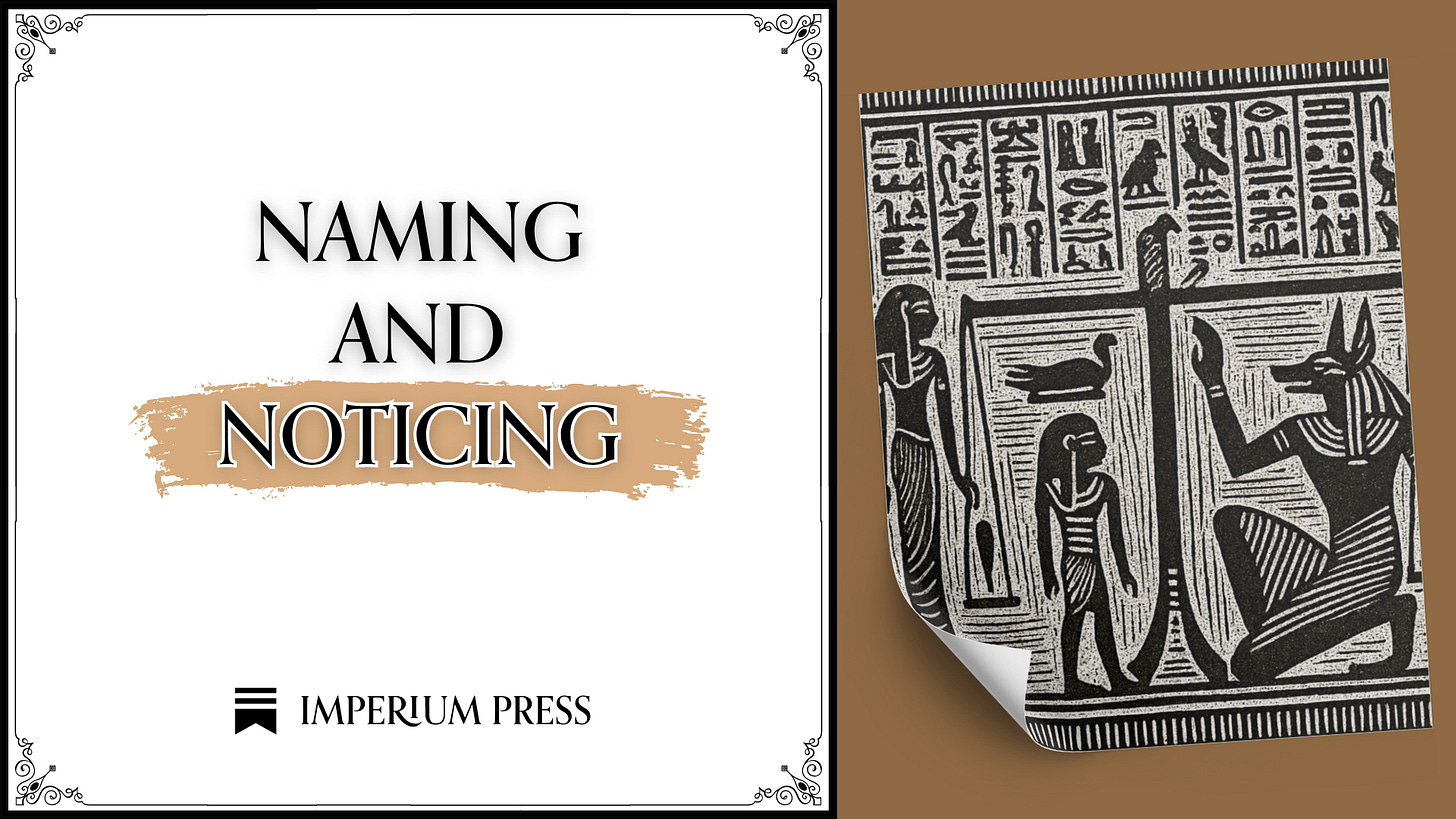If you prefer the audio of this article, click here.
What’s in a name? Quite a lot, as it turns out. For us today, names are just sounds that attach to a person or a thing. Most people name their children based on what ‘sounds nice’—at their peak, 60% of black baby girl names were unique,1 meaning pulled out of thin air. But there is power in naming. When Cassius Clay dubbed himself Muhammad Ali, this was an act of self-legislation, an attempt to reclaim sovereignty over himself.
Your name locates you in your world. It’s a shorthand for a network of relations, positioning you in a field of other names—you’re not just Joe, but the son of Fred, the father of Sally, the cousin of Ryan, the grandson of etc. To be named is not only to be defined, but to come into being—naming is an ontological act. If you really want to fuck with a child’s head, start calling him by a different name. For him, this is as good as not to exist.
There’s a lot of talk of naming them in radical politics, and rightly so. Naming is an ontological act because it conjures something, it commands you to take X as a real thing. It’s also a normative act because naming plugs into a whole network of commands—think of how you’re supposed to feel about the names ‘racist’ or ‘progress’. The whole arc of the post-2016 political world can be characterized as a battle over who is the onomastician, the one who names. On the one side you have the centre, the ‘Cathedral’; on the other, the alt-right. This is what the meme war of 2015–2017 and the battle over ‘disinformation’ are all about—who gets to define what’s a ‘conspiracy theory’, ‘violence’, etc. Naming has always been serious business, but now it’s a matter of life and death for the regime.
Men have understood the power of names forever. The Indo-Europeans knew it. In the Norse epic poem Fafnismol, the hero Sigurth conceals his name from the wyrm Fafnir after dealing Fafnir his death blow, because “it was believed in olden times that the word of a dying man might have great power if he cursed his foe by his name.” In the Odyssey, the hero Odysseus goes to great lengths to conceal his name from the Cyclops Polyphemus, but arrogantly gives it to him at the last moment. Polyphemus then names Odysseus and calls down upon him the curse of his father Poseidon. In the most archaic phases of their religion, the Indo-Europeans would conceal the names of their gods, since to share the name was to share the god.
The Chinese knew the power of names in the Zhengming, the Rectification of Names, where one carves reality at the joints by setting names to things—Confucius called this the “beginning of wisdom”. But no people understood this more deeply than the Egyptians, who believed that naming was an essentially ontological act. To know the true name of a thing is to have power over it; the pharaoh had a name known only to himself and his father—the true name—because to name someone is to invoke him, and whoever cannot be invoked (but by the gods) cannot be cursed.
Does this all seem a little esoteric? Consider the name racism and all its connotations. Now, what is the opposite of racism? The default, healthy, natural socialized state, if the sovereign today is to be believed. ‘Racism’ has ontological standing because it is named, and to be named is to be half-defeated. The opposite of racism has power because it remains unnamed. You may also be familiar with the fundamental attribution error, which in psychology is when you overemphasize intrinsic factors that define someone (“he’s that kind”) and underemphasize situational factors (“he was raised that way”). What is the word for the inverse, where you overemphasize environment and underemphasize heredity? There isn’t one—whatever the opposite of hereditarianism is, it’s hidden in plain sight, transparent and therefore canonical. In naming, we not only bring something into existence, but locate it in a web of normativity. What we’re called upon to notice is exceptional, uncanny, vaguely threatening, and what remains below the ontological threshold is familiar and good, it’s the water that the fish swims through but never notices.
Naming as ontological act has far-reaching political implications. It’s also a bit more complicated than just naming—often the political is the scene of unnaming too, and this is where things get interesting.



